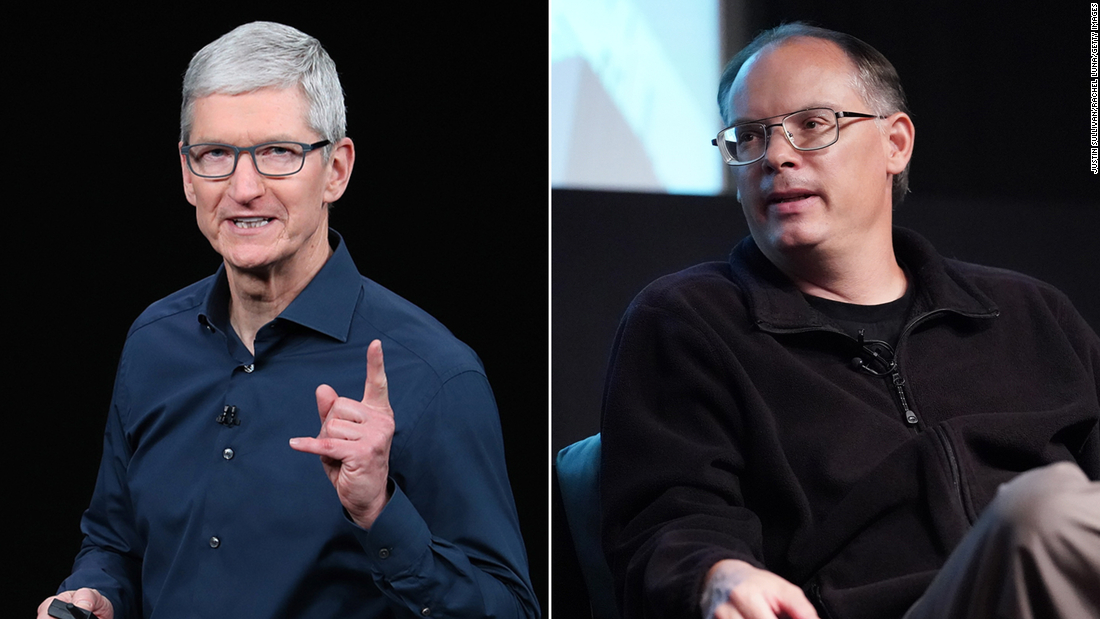
After spending days presenting reams of dueling economic analysis and documentary evidence, the two sides landed on Monday where they began: arguing over how Judge Yvonne Gonzalez Rogers should interpret Apple's role in a sprawling digital economy. The outcome of that analysis could reshape how digital app stores work or uphold Apple's prime position in its app ecosystem.
In a matter of weeks, Gonzalez Rogers is set to decide whether Apple is an agile innovator that reaped just rewards for building a popular app business, or if it is, as Epic alleges, a monopolist that uses its control over the iOS App Store to illegally harm competition, restrict innovation and keep prices high.
Wrapping up the three-week trial, which saw top executives including Apple CEO Tim Cook and Epic CEO Tim Sweeney called in for questioning, the judge said Monday she will strive to issue an opinion by mid-August, though it could take longer given the thousands of pages generated by the groundbreaking antitrust case.
Epic has argued Apple's walled-garden ecosystem makes it impossible to download iPhone and iPad apps from anywhere but Apple's own app store, making Apple a monopoly owner. That alleged monopoly creates opportunities for Apple to impose restrictive terms on iOS app makers, Epic claims, such as requiring a 30% cut of all in-app sales of digital goods and services. (Fortnite was kicked out of Apple's App Store last summer for flouting Apple's rules on digital payments by directing players to its own, outside system.)
On Monday, Epic pleaded with Gonzalez Rogers for an order banning Apple from implementing some of its policies and forcing Apple to allow third-party app stores to compete with its own proprietary app store. Epic also accused Apple of trying to convince the judge it is a "benevolent overlord" of the iOS ecosystem that should be allowed to continue to operate without competition "because it's worked out okay so far."
"That is not a defense under the antitrust laws," Epic's lawyer said. (When Gonzalez Rogers pointed out that Apple couldn't be "benevolent" while also being anti-competitive, Epic's lawyer disagreed and said Apple was only "pretending to be a benevolent overlord" and needed to be genuinely tested against competitors.)
By contrast, Apple has urged Gonzalez Rogers to consider the company's App Store as part of a vibrant, competitive market for video game sales. A procession of prominent executives, culminating with Cook on Friday, argued that Apple's platform rules protect users and provide security and privacy. And on Monday, its lawyers said that giving Epic what it wants would be unjustified and unprecedented.
Gonzalez Rogers offered critical questions to both sides. She challenged Apple on its commission structure, pointing out that "if there was real competition, that number would move and it hasn't." Apple argued later that it has reduced commissions several times, such as by creating a discount for small businesses.
At certain points, the judge implied she was open to finding that Apple had broken the law, musing hypothetically about potential restrictions she could impose on Apple under California law, or considering an analysis that could allow for a finding of anticompetitive conduct by Apple without deciding that it holds a monopoly.
In a somewhat tense exchange, Gonzalez Rogers grilled Cook after his testimony on Friday, asking why Apple couldn't give users a choice to get games and content cheaper than it is on the iPhone. She also asked why Apple wouldn't let apps tell users they could pay for in-app content more cheaply elsewhere online — a point she hit on again Monday.
She also pushed hard against Epic on Monday, suggesting that what the company was asking her to do was to "change the business model" of Apple. She challenged Epic's lawyer, Gary Bornstein, to cite an example of a case that had ended in that type of outcome involving private litigants. The attorneys briefly debated the landmark Microsoft antitrust case of the 1990s, the US government's recent case against Qualcomm and a pending Supreme Court case before ultimately rejecting them as appropriate comparisons.
"You haven't told me a single antitrust case where the kind of relief you are requesting has been granted by a court when a private plaintiff comes in," she said. "It is a pretty significant step that courts haven't done." (Bornstein admitted he did not have a perfect analogy on hand and that the judge faces "a pretty unique situation.")
By expressing reservations about precedent, Gonzalez Rogers opened the door to arguments by Apple that giving into Epic's requests would represent a serious break from history.
"If that is scary for Apple's iOS customers ... and for this court, that is simply a consequence of what Epic is asking for," said Apple's lawyer, Richard Doren. In contrast, Epic claimed that Apple is attempting to "scare the court."
But at other times, Gonzalez Rogers appeared to relish her role on the cutting edge of the law.
"They don't call us the Wild West for nothing," she joked.
https://ift.tt/2RA0Ok9
Business
Bagikan Berita Ini















0 Response to "Apple and Epic Games spar in closing arguments over Fortnite - CNN"
Post a Comment